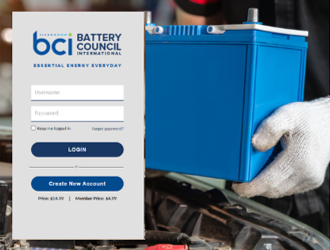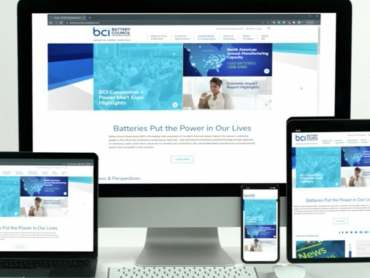
Discover the Revamped Source BCI Website for Streamlined Access to Essential Battery Information
CHICAGO – June 28, 2023 – Battery Council International (BCI), the leading association representing the global battery industry, has launched an updated and improved website for Source BCI, the authoritative source for vehicle battery fitment data for more than 160,000 vehicles spanning 85-plus years.
The improved Source BCI website is easier and faster to use, with a new mobile-ready interface, and provides more detailed information for the professional battery service technician and consumers alike. A Source BCI subscription is a key tool for vehicle maintenance professionals.
As the digital counterpart to the traditional Battery Replacement Data Book, Source BCI revolutionizes the way industry professionals access essential battery information. Source BCI is the standard for convenience and accuracy in battery replacement guidance.

“We are excited to re-introduce Source BCI, our digital battery replacement data book,” said Roger Miksad, BCI president and executive director. “With Source BCI, industry professionals can retrieve the information they need at their fingertips, eliminating the hassle of flipping through pages. It’s a quick and powerful tool for those across the battery industry.”
Registering for Source BCI is simple and straightforward. Interested individuals can visit the website at www.sourcebci.com to sign up and purchase an annual subscription for the nominal fee of $14.99. Source BCI offers a wealth of features designed to enhance user experience and streamline the battery replacement process. The new website features:
Clearer Information:
- Updated BCI branding and logo incorporated for a fresh and modern look.
- Simpler design with fewer content areas on the homepage, emphasizing a focus on essential data.
User-Friendly Design:
- New layout with a horizontal search bar at the top of the screen for intuitive navigation and improved use of screen space.
- Mobile-responsive interface, enabling users to access Source BCI anytime, anywhere.
Enhanced Functionality:
- Integrated payment processor on the website allows for instant access upon purchase, eliminating wait times and the need for access codes.
- Added battery location field within the vehicle, providing users with comprehensive information for an expedited battery replacement process.
“Source BCI not only provides the most current and extensive battery data but also delivers a user-friendly experience that meets the evolving needs of the industry,” added Miksad. “We are proud to empower automotive professionals with the tools they need to make informed decisions and streamline their operations.”
About Battery Council International
Battery Council International (BCI) will soon celebrate its 100-year anniversary as the leading trade association of the North American battery industry representing more than 125 member companies. Formed in 1924, BCI joins together battery manufacturers and recyclers, marketers and retailers, suppliers of raw materials and equipment, and battery distributors from across North America and around the world. BCI members are committed to responsible manufacturing and recycling processes, and serve as a unified voice for environmental, health and safety stewardship. The organization continues to unite members within the lead industry to successfully communicate and protect through education, science, and government efforts the most successful circular economy on the planet. With 99% of used lead batteries collected and recycled in the U.S. and the typical new lead battery containing 80% or more of recycled content, BCI supports the path toward similar sustainability goals for all other battery chemistries.







